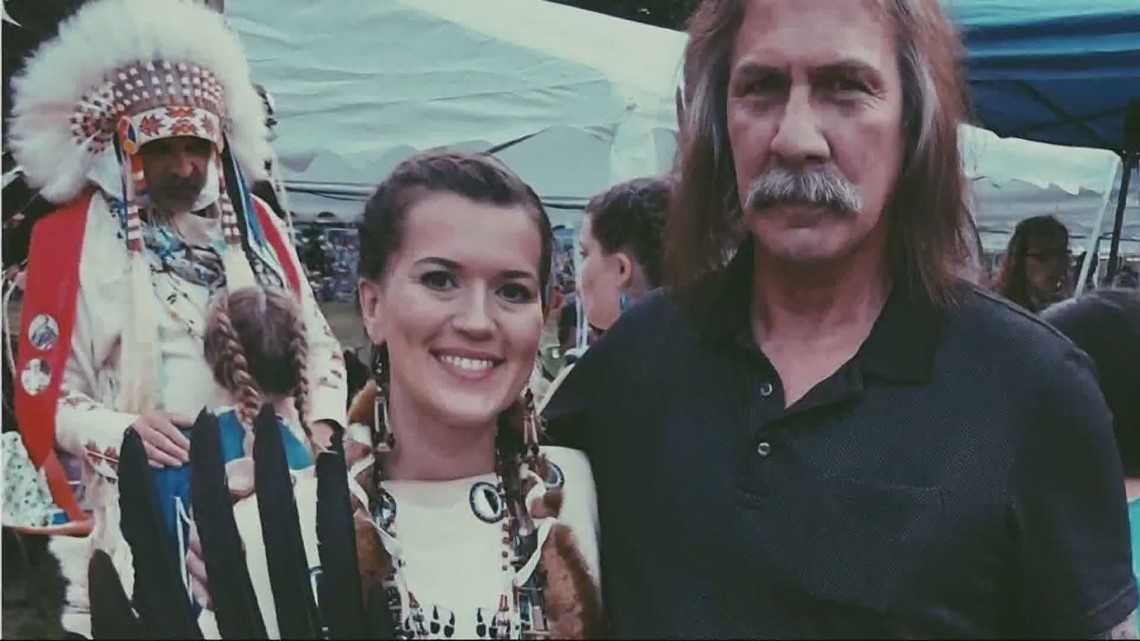PORTLAND, Ore — Oregon has made a historic investment into providing access to higher education for Indigenous students. Governor Kate Brown, who proposed the program in the 2022 legislative session, pointed to the need for such a grant due to the systemic barriers that Native Americans have faced for decades.
Through the Oregon Tribal Student Grant, Oregon lawmakers allocated $19 million in grant money to pay college expenses for Native students across the state next school year, 2022-2023.
Athena Rilatos, who is an enrolled member of the Confederated Tribes of Siletz Indians, is one of many Indigenous students familiar with the high cost of college.
“It's a real uphill battle,” said Rilatos. “I actually lived out of my car for three years of my bachelor's.”
She got her bachelor’s degree in 2020. It took her 10 years — due, in part, to financial hardship.


Now she's gone through one year of schooling for her master’s degree in architecture, but she had to stop.
“It's very expensive to get a master's and my family lives on the reservation in Siletz and, you know — we just don't have that kind of money,” Rilatos said.
She hopes to get her master’s in architecture so she can bring her expertise back to her Tribe and contribute by building more homes.
But the Oregon Tribal Student Grant is bringing some relief. The state has set aside $19 million to help Indigenous students from the nine federally recognized Tribes in Oregon. The money will pay for college-related expenses including tuition, housing, and books for next school year.
A spokesperson with Oregon’s Higher Education Coordinating Commission (HECC) said both new and current students can apply for the grant. State officials anticipate the money will help 700 or more students. The priority deadline to apply is August 1, and funding will be given until the money runs out.
Judy Bluehorse Skelton, who identifies as Nez Perce and Cherokee, is an assistant professor at Portland State University in the Indigenous Nation Studies department. Skelton said the grant money is much needed.
“All of our reservation communities are in rural parts of the state that are often not participating, for different reasons, with the prosperity that you might [have] say in Portland, or Salem, or Eugene,” Skelton said.
Skelton said Native Americans as a whole have the highest poverty rate and in a press release, HECC said 40% of Native Americans who apply for financial aid in Oregon still can't afford college costs, despite additional financial support from other grants or contributions from family members. Additionally, Skelton said Indigenous people still struggle with the generational trauma and other fallout from historical events.
“The consequences of colonization and basically a program of genocide, from which we are always recovering from,” explained Skelton.
That's why both Skelton and Rilatos said the grant is so important.
“Just to even see that as an opportunity for us … feels really good,” said Rilatos.
While they said the grant is a step in the right direction, they also say more needs to be done. The grant covers nine federally recognized Tribes but they say there are more tribes than that in the state.
Also, the grant is only for next school year. For funding to continue, the legislature will have to approve the grant for another year.
On top of funding, Skelton said more also needs to be done in terms of inclusion.
“It diminishes the financial barriers, but we still have the heavy work of when you get inside the institution that people feel welcomed. They see themselves represented,” said Skelton. “We still run into the barriers of institutional racism, exclusion.
“Trust to go back inside a government institution, the trauma students and their families have to decide that they have that courage and stamina to endure because these institutions do not mirror our Indigenous culture.”

